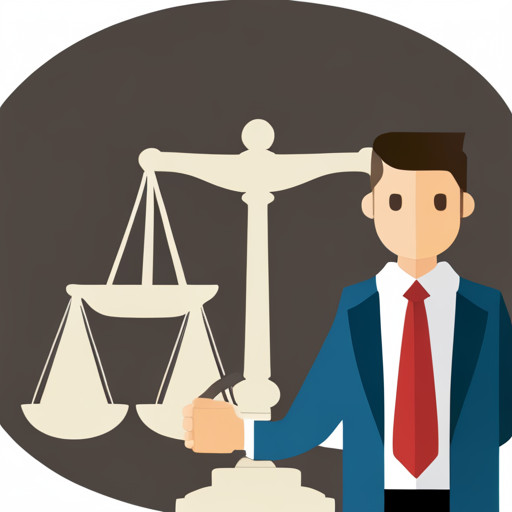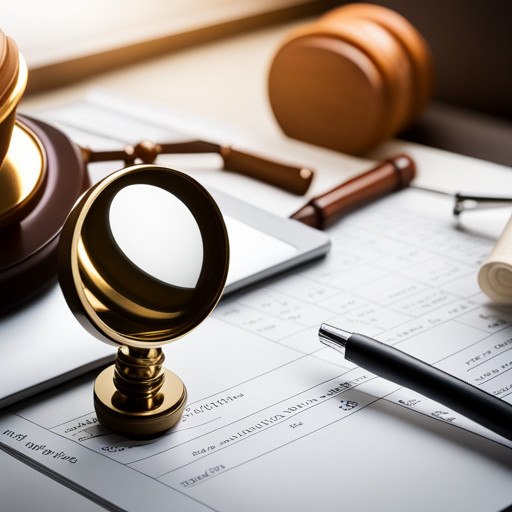How a Lawyer Can Help: Expert Insights for Camp Lejeune Victims
This article explores the role of legal counsel in aiding victims of the Camp Lejeune contamination crisis.

By delving into the history of Camp Lejeune, examining health impacts, and elucidating the legal rights of victims, the objective is to provide a comprehensive guide on how legal assistance can facilitate compensation claims and long-term support.
Real-life case examples are included to underscore the significance of obtaining expert legal advice.
Key Takeaways
- A lawyer with expertise in Camp Lejeune cases is crucial for navigating the complex legal process and advocating for victims.
- Identifying health issues related to exposure at Camp Lejeune is essential for pursuing legal recourse.
- Building a strong case requires comprehensive knowledge of relevant laws and meticulous collection of evidence.
- Understanding personal injury law and having long-term legal support is important for Camp Lejeune victims, including emotional support and insurance assistance.
Understanding the History of Camp Lejeune

A comprehensive exploration of the history of Camp Lejeune provides critical insights into the legal complexities surrounding the cases of its victims. Established in 1941, Camp Lejeune, a military training facility in North Carolina, has been the epicenter of numerous cases related to military negligence. These cases primarily revolve around the exposure of military personnel and their families to contaminated water over several decades.
Delving deeper shows a distressing picture. From the 1950s to the mid-1980s, multiple on-site water supply systems were contaminated with hazardous chemicals at levels significantly higher than the safety limits established by regulatory authorities. Despite indications of potential health hazards, the contamination issue was not addressed until the mid-1980s. Moreover, those affected were not fully informed about the health risks associated with exposure to the contaminated water.
The contamination led to a variety of health issues among military personnel and their families, including birth defects, cancers, and other severe ailments. The affected individuals have since embarked on a legal journey for justice and compensation, highlighting the grave consequences of military negligence.
However, the legal processes associated with these cases are intricate. They involve navigating through complex legislation such as the Defense Base Act and the Feres Doctrine, which traditionally limit legal recourse for military personnel injured due to military negligence. Understanding the history of Camp Lejeune is therefore vital. It offers a contextual backdrop to the legal challenges faced by victims and underscores the need for specialized legal assistance to navigate the complexities of personal injury law.
Health Impacts on Camp Lejeune Victims

A critical aspect of the discourse on the health impacts on Camp Lejeune victims relates to the identification of emerging health issues and the potential for long-term medical consequences.
The complexity of the situation necessitates a comprehensive understanding of personal injury law and its implications for the victims.
Moreover, an empathetic approach is required when dealing with cases of this nature, due to the profound physical and psychological ramifications that these health issues may impose on the victims.
Identifying Health Issues
Identifying health issues related to exposure at Camp Lejeune stands as a critical first step in pursuing legal recourse.
Environmental contaminants, notably volatile organic compounds (VOCs), have been linked to several health problems amongst residents and employees. The list includes, but is not limited to, specific cancers, neurological disorders, and birth defects.
This scenario underscores the potential for military negligence, as the management of the camp had a duty of care to protect its inhabitants from harmful environmental exposure.
The identification of these health issues, coupled with an understanding of the connection between exposure and illness, can establish a solid foundation for legal claims.
This process can provide victims with the opportunity to seek compensation for their suffering and hold the responsible parties accountable.
Long-term Medical Consequences
Long-term medical consequences of exposure to environmental contaminants, such as volatile organic compounds (VOCs), include an increased risk for developing specific cancers, neurological disorders, and birth defects. This environmental exposure often results in life-altering health impacts, necessitating extensive medical care.
Additionally, such contaminant effects can lead to substantial emotional and financial burdens. Understanding these potential health risks is crucial in personal injury law, as it can impact the compensation victims may be entitled to.
Therefore, legal professionals familiar with the harmful effects of VOCs can provide invaluable assistance to victims seeking redress for their injuries. Equipped with this knowledge, they can effectively advocate for the victims, ensuring that the serious nature of these long-term medical consequences is acknowledged and adequately compensated.
The Role of a Lawyer in a Camp Lejeune Case

Navigating through a Camp Lejeune case requires the expertise of a lawyer who can advocate for victims and guide them through the complex legal process. Understanding the legal complexities of such cases is not an easy task. The intricate nature of laws and regulations pertaining to environmental contamination, as well as the specific circumstances surrounding the contamination at Camp Lejeune, necessitate professional legal assistance.
The role of a lawyer in the Camp Lejeune case extends beyond simple advocacy. It involves:
- Comprehending detailed medical documentation and environmental reports to build a robust case.
- Negotiating settlements with insurance companies or government agencies, ensuring victims receive appropriate compensation.
- Overseeing case timelines and deadlines to prevent any legal missteps that could jeopardize the case.
A lawyer with a deep understanding of personal injury law can effectively navigate the labyrinth of legal proceedings, ensuring that the victims' rights are upheld and their interests are protected. It is critical to keep in mind that these cases often involve powerful opponents like government institutions or large corporations. Hence, having a lawyer with the required expertise can level the playing field.
Empathy towards the victims' situation is another crucial aspect of a lawyer's role. The consequences of the contamination at Camp Lejeune are far-reaching and have had a profound impact on the victims' lives. Therefore, a lawyer must approach these cases with a profound understanding of the physical and emotional trauma endured by the victims, ensuring that their legal representation reflects their unique circumstances.
Steps to Hiring a Lawyer for Camp Lejeune Victims

Selecting an appropriate legal representative for individuals affected by environmental contamination involves a detailed evaluation of potential candidates' qualifications, experience, and track record in similar cases. The lawyer selection criteria should encompass a broad range of factors including educational background, area of specialization, and reputation in the legal community.
Equally important is the legal fees discussion. Prospective clients should seek full disclosure of any financial obligations that may arise in the course of representation. This includes understanding the fee structure, whether it is a flat fee, an hourly rate, or a contingency fee arrangement.
The following table summarizes these considerations:
| Criteria | Description | Importance |
|---|---|---|
| Qualifications | Academic credentials, licensing, and professional memberships | Ensures competence and adherence to ethical standards |
| Experience | Years of practice, familiarity with personal injury law, and records of handling similar cases | Increases chances of successful litigation |
| Reputation | Peer and client reviews, recognition, and awards | Reflects professionalism and credibility |
| Area of Specialization | Focus on environmental law, personal injury law, or toxic torts | Enhances the understanding of case-specific complexities |
| Legal Fees | Transparency in fee structure and costs involved | Prevents financial surprises and disputes |
Legal Rights of Camp Lejeune Victims

Understanding the legal rights of individuals adversely affected by environmental contamination is crucial in securing justice and compensation. In the case of Camp Lejeune victims, comprehensive knowledge of personal injury law can be instrumental in pursuing a claim. Victim representation plays a pivotal role in navigating the legal landscape and ensuring adequate protection of rights.
Particularly, victims of environmental harm at Camp Lejeune can leverage several legal provisions to seek redress. These provisions include:
- The Comprehensive Environmental Response, Compensation, and Liability Act (CERCLA), which provides a federal 'superfund' to clean up contaminated sites and a legal framework to hold responsible parties accountable.
- The Resource Conservation and Recovery Act (RCRA), which governs the safe handling and disposal of hazardous waste.
- The Federal Tort Claims Act (FTCA), which allows private individuals to sue the United States for damages due to negligence.
Timely and expert victim representation is crucial to effectively utilise these legal provisions. An experienced attorney can help victims clearly understand their rights, adequately prepare their case, and negotiate a fair compensation.
Moreover, an empathetic approach towards the victims' situation is essential. Understanding the physical, emotional, and financial strains the victims are enduring can guide the legal process towards a resolution that addresses their needs, ultimately helping them reclaim a sense of normalcy after the traumatic experience.
How to Build a Strong Case: Advice From Legal Experts

Building a robust legal case necessitates comprehensive knowledge of relevant laws, meticulous collection and analysis of evidence, and strategic argumentation, as underscored by legal professionals. In the context of Camp Lejeune victims, this process is further complicated by the intricate nature of personal injury law, and the profound impacts of the circumstances on victims' lives.
Case evidence plays a pivotal role in the construction of a compelling legal argument. This includes, but is not limited to, medical records indicating the extent and nature of injuries, photographic or video proofs, and documents that establish the link between the harm sustained and the conditions at Camp Lejeune. It is crucial to gather this evidence systematically, ensuring it is legally admissible and supports the claims being made.
Witness testimony is another key component of the legal process. Witnesses can provide firsthand accounts of the conditions at Camp Lejeune, corroborating the case evidence and strengthening the overall argument. It is critical to identify and interview potential witnesses thoroughly and professionally, as their testimonies could significantly sway the case.
In closing, understanding the complex field of personal injury law, strategically gathering and analyzing case evidence, and leveraging witness testimony are fundamental for building a robust case for Camp Lejeune victims. An empathetic approach to these victims' situations is recommended, recognizing that the pursuit of justice is not just a legal challenge but also a deeply personal endeavor.
Navigating the Legal Process: Essential Information for Victims

Following an in-depth exploration of strategies to build a robust case, it is equally pivotal to comprehend the intricacies of the legal process. Undoubtedly, navigating this labyrinthine system necessitates an understanding of key aspects such as legal loopholes and compensation eligibility.
An expert awareness of legal loopholes is crucial in personal injury law. These loopholes often manifest as ambiguities or omissions in the law that may be exploited to alter the outcome of a case. Knowledge of these loopholes can be particularly advantageous for victims, potentially enhancing their chances of a favorable verdict.
Eligibility for compensation is another fundamental aspect of the legal process. Compensation, which may cover medical expenses, lost wages, and emotional distress, among other damages, is not automatically granted. Detailed requirements must be met, with these criteria varying according to jurisdiction and the nature of the claim.
Three vital elements in understanding the legal process include:
- Recognizing legal loopholes: These may include provisions in the law that are vaguely defined or entirely omitted, which can be utilized to sway the outcome of a case.
- Understanding compensation eligibility: Familiarity with the specific requirements for compensation can significantly increase the likelihood of a successful claim.
- Emphasizing thorough documentation: Detailed documentation of the injury, medical treatment, and related expenses establish a concrete foundation for a personal injury case.
Empathy for victims' situations is paramount in this process. An empathetic approach allows for a more nuanced understanding of the physical, emotional, and financial toll of personal injury, thereby reinforcing the importance of expert legal guidance in navigating this complex landscape.
The Importance of Medical Records in a Camp Lejeune Lawsuit

The significance of medical documentation in the context of a Camp Lejeune lawsuit cannot be overstated, as it forms the bedrock of evidence demonstrating the extent and nature of injuries sustained. Gathering comprehensive health records is an imperative task in this process, requiring meticulous attention to detail to ensure a robust and unassailable body of evidence is compiled.
The impact these records may have on the outcome of a legal proceeding is considerable, potentially influencing not only the judgement, but also the quantum of damages awarded in favor of the victim.
Significance of Medical Documentation
Importance of comprehensive medical documentation cannot be underestimated in providing solid evidence for Camp Lejeune victims' legal claims. Documentation challenges often arise in these cases, making record retrieval a critical step. Not only does this process help to establish a connection between the exposure and the resulting health condition, but it also bolsters the validity of the claim in the eyes of the court.
- Detailed medical records can provide undisputed evidence of the health impact.
- Proper record retrieval ensures all relevant documentation is presented.
- Overcoming documentation challenges can significantly strengthen the lawsuit.
Understanding the intricate details of personal injury law, and being empathetic to victims' situations, it is clear that effective handling of medical documentation plays a pivotal role in these legal proceedings, particularly for Camp Lejeune victims.
Gathering Comprehensive Health Records
Gathering comprehensive health records is an essential task in substantiating the claims made by individuals affected by environmental exposures, as these documents can unequivocally demonstrate the causative link between the exposure and the medical conditions suffered.
The process of record verification is of paramount importance, ensuring the accuracy of data and validity of claims. A well-curated health timeline can serve as compelling evidence in personal injury law, showcasing the progression of medical conditions over time.
It is undeniable that the journey of claimants can be a daunting one, fraught with complexities and challenges. Yet, with the right assistance, meticulous record-keeping can pave the way for rightful compensation, bringing a glimmer of justice to the victims' situations.
Records Impact on Lawsuit
Comprehensive health records significantly influence the outcome of lawsuits, serving as critical evidence in demonstrating the correlation between environmental exposures and subsequent medical conditions. These records, meticulously preserved, offer a tangible link between harmful substances and developed illnesses.
Facing legal challenges, the importance of these records is often underscored. This importance can be categorised into three facets:
- Providing a chronological documentation of health status and changes
- Establishing causality between exposure and disease manifestation
- Serving as a basis for expert medical testimony
Record preservation, therefore, becomes a keystone in the pursuit of justice. The absence or insufficiency of these records may lead to a weakened case. Hence, the meticulous collection and preservation of health records are crucial in personal injury lawsuits.
Financial Compensation for Camp Lejeune Victims: What to Expect

Financial compensation for victims of Camp Lejeune can vary widely, depending on factors such as extent of harm suffered, duration of exposure, and the specific circumstances of each case. It is crucial to understand that the process of calculating and obtaining compensation can be fraught with numerous obstacles, necessitating a deep understanding of personal injury law and the particularities of the Camp Lejeune case.
Understanding claim eligibility is the first step in this process. Victims must meet certain criteria to be considered eligible for compensation. These include proof of residence or service at Camp Lejeune during the contamination period, medical evidence of a specific illness or condition linked to the water contamination, and evidence of harm or injury resulting from the exposure.
However, even with clear eligibility, victims often encounter compensation obstacles. These may include challenges in obtaining necessary documentation, particularly for cases dating back several decades. In addition, the complexity of legal and medical terminologies can create barriers to understanding and asserting one's rights and entitlements.
Moreover, the process of determining compensation amounts is complex, taking into account the severity and duration of harm, the need for ongoing medical treatment, loss of income, and other factors. This calculation requires a thorough understanding of personal injury law and the application of this knowledge to the specific circumstances of each case.
Successful Camp Lejeune Cases: Real-Life Examples

The examination of successful Camp Lejeune cases provides invaluable insights into the realm of personal injury law, specifically in relation to victims of contamination incidents. By delving into the narratives of victory, it becomes possible to discern patterns and strategies that have led to successful litigations, thus facilitating a more comprehensive understanding of the legal landscape.
Furthermore, lessons gleaned from these triumphs serve not only as a beacon of hope for victims in similar circumstances, but also as a practical guide to navigate the intricacies of personal injury claims and lawsuits.
Victory Stories
Victory stories serve as powerful examples of how legal assistance can lead to successful outcomes for Camp Lejeune victims. Survivor resilience, often bolstered by community support, plays a significant role in these triumphs.
- Demonstrated resilience of victims, exemplified by their relentless fight for justice.
- The invaluable role of community support in the form of emotional, informational and financial assistance.
- The expertise of personal injury law practitioners in navigating through complex legal landscapes, often leading to favorable verdicts for victims.
These factors, along with legal professionals' intricate knowledge of personal injury law, contribute to the successful resolution of cases. Understanding the victims' situations and their need for justice, lawyers work tirelessly to ensure the best possible outcome.
This demonstrates the symbiotic relationship between survivor resilience, community support and legal expertise.
Lessons From Successes
Analyzing successful cases not only provides a roadmap for future legal strategies, but also underscores the significant impact of factors such as resilience and community support on the outcome.
It is evident that victim support, as an external factor, has been crucial in navigating the complexities of personal injury law. It is often through this network that victims gain knowledge about legal loopholes, which can play a decisive role in securing a positive legal outcome. Understanding how to exploit these legal loopholes is integral to formulating a robust strategy.
Furthermore, the resilience of the victim, often bolstered by community support, plays a significant role in the pursuit of justice, especially in cases with lengthy proceedings.
Legal Resources for Camp Lejeune Victims

Legal resources for victims of Camp Lejeune provide essential support, including representation, counsel, and guidance throughout the litigation process. The Lejeune Legislation marks a significant advancement in environmental accountability and serves as a beacon of hope for affected individuals. These resources, often provided by experienced personal injury attorneys, offer expertise in navigating the complexities of the legal system, which can be daunting for victims.
The resources can be categorized into three primary areas:
- Legal advice and representation: Expert lawyers provide victims with advice tailored to their unique circumstances and guide them through each step of the legal process.
- Emotional support and counseling: Support networks are established, offering victims a platform to share their experiences and receive emotional backing.
- Financial advice: Victims are offered guidance on managing financial challenges that arise as a result of their situation.
The role of these resources extends beyond mere representation. They are the pillars upon which victims build their cases, fighting for justice and due compensation. The Lejeune Legislation highlights the importance of environmental accountability, pushing for better standards and practices in military bases. It is a testament to the power of legal recourse in addressing environmental health hazards.
Understanding the intricate details of personal injury law is crucial in such cases. The right legal resources can help victims explore every avenue for compensation, ensuring that their rights are not infringed upon. Furthermore, these resources provide victims with the tools necessary to face adversities, fostering resilience and hope amidst challenging circumstances.
Preparing for the Future: Long-term Legal Support for Victims

Long-term legal support is an essential framework for ensuring sustainable assistance to those afflicted by environmental health hazards, thereby empowering them to successfully navigate the complexities of litigation and secure due compensation. This enduring aid reaches far beyond the courtroom, extending into the realms of emotional support, insurance assistance, and more. Offering an informed and empathetic understanding of the unique challenges these victims face, this form of steadfast advocacy is pivotal in the pursuit of justice.
Emotional support is a crucial facet of long-term legal backing, acknowledging the profound psychological impacts that such experiences can impart. In this context, legal professionals provide reassurance and guidance, aiding in the mitigation of stress and anxiety that often accompany such unsettling circumstances. Ensuring victims understand their rights and the course of action being taken, they offer a sense of control and security in situations often characterized by uncertainty and fear.
Insurance assistance, on the other hand, involves the navigation of insurance claims and interactions with insurance providers. This is particularly important in instances where health conditions linked to environmental hazards may not be immediately apparent, necessitating long-term medical surveillance and treatment. Expert legal guidance ensures the adequacy and appropriateness of insurance coverage, thus protecting victims from potential financial hardship.
Frequently Asked Questions
What Types of Psychological Support Are Available for Victims of Camp Lejeune?
Victims of Camp Lejeune may access various forms of psychological support. Therapeutic techniques, such as cognitive-behavioral therapy and trauma-focused therapy, are often utilized to address post-traumatic stress and anxiety.
Additionally, supportive counseling provides an avenue for emotional expression and coping skill development.
It's essential, however, to ensure compliance with personal injury law when procuring these services to protect the victims' rights and interests.
How Can Families of Victims From Camp Lejeune Get Involved in the Legal Process?
In the daunting labyrinth of the legal system, families of Camp Lejeune victims may actively participate by exploring their legal representation options. Engaging with legal professionals allows them to better understand potential compensation possibilities for the harm suffered.
This process, steeped in personal injury law, provides an avenue for these families to assert their rights, seek justice, and potentially gain reparations. It offers a crucial aspect of support in their ongoing journey towards healing.
Are There Any Specific Charities or Organizations That Offer Support to Camp Lejeune Victims?
Several organizations provide support for Camp Lejeune victims, offering financial aid options and promoting medical advancements.
These include The Few, The Proud, The Forgotten (TFTPTF), which aids victims in navigating legal processes, and the Agency for Toxic Substances and Disease Registry (ATSDR), which advances research on the health effects of exposure.
Both provide vital assistance for victims seeking justice and medical care.
How Can the Community Support and Raise Awareness for the Victims of Camp Lejeune?
Support and awareness for victims of Camp Lejeune can be bolstered through several methods.
Firstly, Environmental Impact Studies can highlight the extent of contamination and its repercussions.
Secondly, community outreach initiatives can serve to educate the public about the issue, mobilizing them in support of victims.
Various platforms can be utilized to disseminate information, encourage volunteering, and raise funds.
Such efforts can indeed underscore the maxim, 'knowledge is power,' fostering collective responsibility and action.
Are There Any Educational Resources or Programs Available for the Children of Camp Lejeune Victims?
Educational resources for offspring of Camp Lejeune victims do exist, notably in the form of Victim Scholarships. These financial aids provide children an opportunity to pursue education despite the familial hardship.
Additionally, Family Counseling programs are in place, offering psychological support to families affected by the tragedy. These initiatives aim to mitigate the impact of the incident on the lives of these children, providing them with opportunities for growth and development.
Conclusion
In conclusion, the plight of Camp Lejeune victims underscores the critical role an attorney plays in such complex cases. These individuals, grappling with health challenges linked to contaminated water exposure, can significantly benefit from legal assistance tailored to their unique circumstances.
Interestingly, the Department of Veterans Affairs reports that over 900,000 service members were potentially exposed at Camp Lejeune. This statistic underscores the magnitude of the issue, reinforcing the necessity for expert legal representation and long-term support for affected individuals.

This post has been generated by AI and was not reviewed by editors. This is Not legal advice. Please consult with an attorney.




